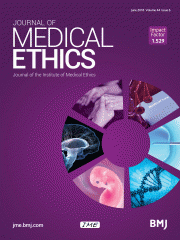Posted on February 27, 2018
Source: Journal of Medical Ethics

Paul A, Merritt MW, Sugarman J
Ethics guidance increasingly recognises that researchers and sponsors have obligations to consider provisions for post-trial access (PTA) to interventions that are found to be beneficial in research. Yet, there is little information regarding whether and how such plans can actually be implemented. Understanding practical experiences of developing and implementing these plans is critical to both optimising their implementation and informing conceptual work related to PTA. This viewpoint is informed by experiences with developing and implementing PTA plans for six large-scale multicentre HIV prevention trials supported by the HIV Prevention Trials Network. These experiences suggest that planning and implementing PTA often involve challenges of planning under uncertainty and confronting practical barriers to accessing healthcare systems. Even in relatively favourable circumstances where a tested intervention medication is approved and available in the local healthcare system, system-level barriers can threaten the viability of PTA plans. The aggregate experience across these HIV prevention trials suggests that simply referring participants to local healthcare systems for PTA will not necessarily result in continued access to beneficial interventions for trial participants. Serious commitments to PTA will require additional efforts to learn from future approaches, measuring the success of PTA plans with dedicated follow-up and further developing normative guidance to help researchstakeholders navigate the complex practical challenges of realising PTA.